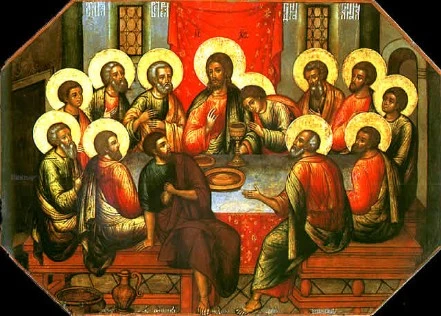m
“For these Christians, the Sunday Eucharist was not a commandment, but an inner necessity. Without him who sustains our lives, life itself is empty. To do without or to betray this focus would deprive life of its very foundation, would take away its inner dignity and beauty.” – Pope Benedict (St. Stephen’s Cathedral, Vienna 2007 speaking on the Martyrs of Abitinae)
In around the year 303 AD, the Emperor Diocletian ordered that all Christians seize the assembling of worship and that all such places of worship along with any Scriptural texts be destroyed. Defying such orders, a group of Christians from the town of Abitinae, a Roman province of Africa today known as Tunisia, began to meet weekly in homes to celebrate the Sunday Mass. They were taken by surprise one Sunday, when meeting in the home of Octavius Felix, arrested and then taken to Carthage, the capital of the province, where they were interrogated and to stand trial. This group of 49 Christians remained resolute in their identity as Christians which as we will see, the Sunday Eucharist being the most indispensable.
For it was recorded that during their trial and torture they were asked by the Proconsul Anulinus, “Why have you received Christians in your home, transgressing the imperial dispositions?” One of the martyrs named Emeritus answered thus: “Sine dominico non possumus” (We cannot live without the Sunday Eucharist).
The question was then posed to Octavius Felix, whose house the Mass was celebrated at: “I am not asking you if you are a Christian, but if you have taken part in the assembly or if you have a book of the Scriptures.” The answer from the martyr was both bold and beautiful: “O foolish and ridiculous question of the judge! As if a Christian could be without the Sunday Eucharist, or the Sunday Eucharist could be celebrated without there being a Christian! Don’t you know, Satan, that it is the Sunday Eucharist which makes the Christian and the Christian that makes the Sunday Eucharist, so that one cannot subsist without the other, and vice versa?”
Ultimately these brave men and women were put to death for refusing to renounce their faith. What I find to be most captivating is that during their time the obligation to attend Sunday Mass was not yet a precept of the Church. Yet, here are 49 individuals who are willing to die rather than give up what is most precious to them: receiving the Body and Blood of Our Lord Jesus Christ.
Some 2,000 years later I would like to share the words of J.R.R. Tolkien, the beloved author of “The Lord of the Rings”, who on writing to his son about marriage seems to communicate for us just what the martyrs of Abitinae died for:
“Out of the darkness of my life, so much frustrated, I put before you the one great thing to love on earth: The Blessed Sacrament…There you will find romance, glory, honor, fidelity, and the true way of all your loves upon earth, and more than that…” (The Letters of J.R.R. Tolkien, pp. 53-54)
